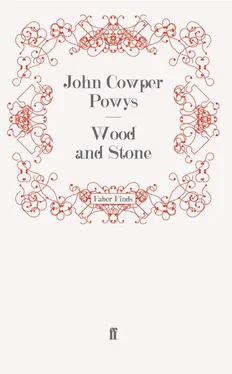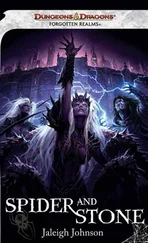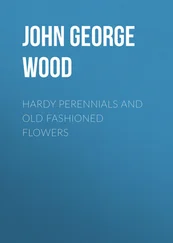They finally selected a remote place under the southern wall, at the point where the long shadow of the tower, in the late afternoon, flung its clear-outlined battlements on the waving grass.
Luke continued to be entirely pleased with Mr. Quincunx’s tact and sympathy. He felt he could not have secured a better companion for this task of selecting the final resting-place of the brother of his soul. “Curse these fools,” he thought, “who rail against this excellent man!” What mattered it, after all, that the fellow hated what the world calls “work,” and loved a peaceful life removed from distraction?
The noble attributes of humour, of imagination, of intelligence, — how much more important they were, and conducive to the general human happiness, than the mere power of making money! Compared with the delicious twists and diverting convolutions in Mr. Quincunx’s extraordinary brain, how dull, how insipid, seemed such worldly cleverness!
The death of his brother had had the effect of throwing these things into a new perspective. The Machiavellian astuteness, which, in himself, in Romer, in Mr. Taxater, and in many others, he had, until now, regarded as of supreme, value in the conduct of life, seemed to him, as he regretfully bade the recluse farewell and retraced his steps, far less, essential, far less important, than this imaginative sensitiveness to the astounding spectacle of the world.
He fancied he discerned in front of him, as he left the churchyard, the well-known figure of his newly affianced Annie, and he made a detour through the lane, to avoid her. He felt at that moment as though nothing in the universe were interesting or important except the sympathetic conversation of the friends of one’s natural choice — persons of that small, that fatally small circle, from which just now the centre seemed to have dropped out!
Girls were a distraction, a pastime, a lure, an intoxication; but a shock like this, casting one back upon life’s essential verities, threw even lust itself into the limbo of irrelevant things. All his recent preoccupation with the love of women seemed to him now, as though, in place of dreaming over the mystery of the great tide of life, hand in hand with initiated comrades, he were called upon to go launching little paper-boats on its surface, full of fretful anxiety as to whether they sank or floated.
Weighed down by the hopeless misery of his loss, he made his way slowly back to the station-master’s house, too absorbed in his grief to speak to anyone.
After tea he became so wretched and lonely, that he decided to walk over to Hullaway on the chance of getting another glimpse of Witch-Bessie. Even the sympathy of the station-master’s wife got on his nerves and the romping of the children fretted and chafed him.
He walked fast, swinging his stick and keeping his eyes on the ground, his heart empty and desolate. He followed the very path by which Gladys and he, some few short weeks before, had returned in the track of their two friends, from the Hullaway stocks.
Arriving at the village green, with its pond, its elms, its raised pavement, and its groups of Sunday loiterers, he turned into the churchyard. As we have noted many times ere now, the appealing silence of these places of the dead had an invincible charm for him. It was perhaps a morbid tendency inherited from his mother, or, on the other hand, it may have been a pure aesthetic whim of his own, that led him, with so magnetic an attraction, towards these oases of mute patience, in the midst of the diurnal activities; but whatever the spell was, Luke had never found more relief in obeying it than he did at this present hour.
He sat down in their favourite corner and looked with interest at the various newly-blown wild-flowers, which a few weeks’ lapse had brought to light. How well he loved the pungent stringy stalks, the grey leaves, the flat sturdy flowers of the “achillea” or “yarrow”! Perhaps, above all the late summer blooms, he preferred these — finding, in their very coarseness of texture and toughness of stem, something that reassured and fortified. They were so bitter in their herbal fragrance, so astringent in the tang of their pungent taste, that they suggested to him the kind of tonic cynicism, the sort of humorous courage and gay disdain, with which it was his constant hope to come at last to accept life.
It pleased him, above all when he found these plants tinged with a delicious pink, as though the juice of raspberries had been squeezed over them, and it was precisely this tint he noticed now in a large clump of them, growing on the sun-warmed grave of a certain Hugh and Constance Foley, former occupants of the old Manor House behind him.
He wondered if this long-buried Hugh — a mysterious and shadowy figure, about whom James and he had often woven fantastic histories — had felt as forlorn as he felt now, when he lost his Constance. Could a Constance, or an Annie, or a Phyllis, ever leave quite the void behind them such as now ached and throbbed within him? Yes, he supposed so. Men planted their heart’s loves in many various soils, and when the hand of fate tugged them away, it mattered little whether it was chalk, or sand, or loam, that clung about the roots!
He looked long and long at the sunlit mounds, over which the tombstones leaned at every conceivable angle and upon which some had actually fallen prostrate. These neglected monuments, and these tall uncut grasses and flowers, had always seemed to him preferable to the trim neatness of an enclosure like that of Athelston, which resembled the lawn of a gentleman’s house.
James had often disputed with him on this point, arguing, in a spirit of surly contradiction, in favour of the wondrous effect of those red Athelston roses hanging over clear-mown turf. The diverse suggestiveness of graveyards was one of the brother’s best-loved topics, and innumerable cigarettes had they both consumed, weighing this subject, on this very spot.
Once more the hideous finality of the thing pierced the heart of Luke with a devastating pang. On Wednesday next, — that is, after the lapse of two brief days, — he would bid farewell, for ever and ever and ever, to the human companion with whom he had shared all he cared for in life!
He remembered a little quarrel he once had with James, long ago, in this very place, and how it had been the elder and not the younger who had made the first overtures of reconciliation, and how James had given him an old pair of silver links, — he was wearing them at that moment! — as a kind of peace-offering. He recollected what a happy evening they had spent together after that event, and how they had read “Thus spake Zarathustra” in the old formidable English translation — the mere largeness of the volume answering to the largeness of the philosopher’s thought.
Never again would they two “take on them,” in the sweet Shakespearean phrase, “the mystery of things, as though they were God’s spies.”
Luke set himself to recall, one by one, innumerable little incidents of their life together. He remembered various occasions in which, partly out of pure contrariness, but partly also out of a certain instinctive bias in his blood, he had defended their father against his brother’s attacks. He recalled one strange conversation they had had, under the withy-stumps of Badger’s Bottom, as they returned through the dusk of a November day, from a long walk over the southern hills. It had to do with the appearance of a cloud-swept crescent moon above the Auber woods.
James had maintained that were he a pagan of the extinct polytheistic faith, he would have worshipped the moon, and willingly offered her, night by night, — he used the pious syllables of the great hedonist, — her glittering wax tapers upon the sacred wheaten cake. Luke, on the contrary, had sworn that the sun, and no lesser power, was the god of his idolatry, and he imagined himself in place of his brother’s wax candles, pouring forth, morning by morning, a rich libation of gold wine to that bright lord of life.
Читать дальше












